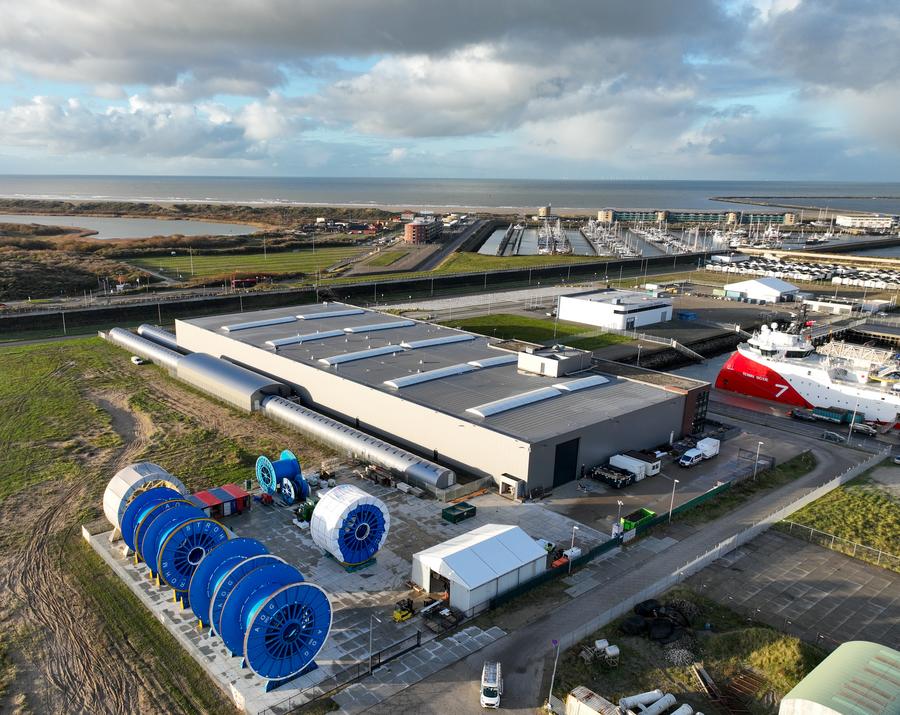The year 2024 marked the date when Strohm turned from an engineering led start-up into a technology growth company following its breakthrough a few years earlier. As the inventor of Thermoplastic Composite Pipe (TCP), and introducing it to the global energy industry, we learned what it is to be a true disruptor, and how to scale up successfully.
Our novel technology disrupts existing entrenched interests and business models, renders existing knowledge redundant, and requires industry standards to be revised or new ones created. This leads to the wider sector being somewhat reluctant to embrace it and we must constantly push ahead to create the acceleration needed to make the technology widely accepted. We simply cannot relax and sit back waiting for the revenue to come.
To create and accelerate acceptance, we understand that it is about more than just the technology. It is about creating trust by being transparent. Where competitors hold their knowledge close to their chest, we turn it around and we share as much as realistically possible to enable others to fully understand our solution. In doing this we provide support and the necessary models to our partners such as contractors and engineering houses to perform a thorough analysis and increase the acceptance of our innovative technology.
Looking back at 2024
The past year has been a busy one for Strohm – we won our largest TCP ‘Jumpers On Demand’ contract with ExxonMobil in Guyana, secured a €25 million investment from SENCO Hydrogen Capital and others in summer, and expanded our staff count by 25%, whilst growing our revenue by 30%.
It has firmed up the foundations on which we can grow further and more rapidly in the coming years
At this point, Strohm is well known for high-pressure and high-performance TCP Jumpers around the world as this is where we have the biggest track record. While we have provided flowlines before to global clients on a case-by-case basis, our flowline track record was previously not as strong. This has all changed in 2024. We have broken through in the larger market for flowlines and expanded our offering into deepwater and very high CO2 applications, as well as onshore with a new contract in the Middle East which will be announced in 2025.
From a technology perspective, the Lapa project in Brazil was a big breakthrough in our track record for deepwater applications, with our TCP flowlines being installed at water depths of about 2200 metres, with high pressures and CO2 concentrations.
We are continuing to service the oil and gas sector, whilst also making strides into the carbon capture and storage (CCS) and hydrogen markets. We are a partner in the HOPE[1] project, aiming to be the world’s first offshore hydrogen production pilot where the hydrogen is supplied to shore in pure form through TCP. We have a strong track record in high CO2 applications as we develop TCP as a superior, non-corrosive solution for onshore and offshore CO2 transfer.
In terms of growth, our main ambition this year is to grow sustainably and in a predictable manner, creating a strong foundation for the inevitable acceleration. We are proud to have delivered all our projects on time this year, at highest quality and safety performance. This may not seem exciting, but growth can be challenging if the systems in place don’t scale up fast enough, if quality suffers or when efficiencies are not achieved. We have been able to grow while maintaining quality and predictability, and at the same time reducing unit cost. What has helped us, is having a strong, established client base with trust in our proven products; we made sure to invest in quality control, consistency, and our people. Through this we have created a strong, profitable platform that allows us to plan for the next steps in our acceleration.
Next steps in our accelerated growth
We expect 2025 to be one of accelerated growth for us as we’re aiming to complete the next step of our plant expansion, scale up our manufacturing capacity in the Netherlands, and start preparing for manufacturing abroad.
Our ambition is to further scale our technologies and continue our successful expansion, especially in the field of energy transformation around hydrogen and carbon capture. Strohm has been a climate neutral company for years, and TCP strongly reduces the footprint of an installed pipeline architecture. The materials and key benefits of no corrosion, fatigue or embrittlement make the technology highly suitable for renewable energy applications and we will see the first projects coming onstream in 2025.
I am proud of what we are achieving here at Strohm. We are living proof that high-end production in Europe is possible when handled right, and that local start-ups can become successful growth companies without compromising the industry’s commitment to a more sustainable and future-proofed energy supply.
[1] Hydrogen Offshore Production Europe, a consortium including Lhyfe, Alfa Laval, Plug, Strohm, EDP NEW, ERM, CEA, POM-West-Vlaanderen, and DWR eco.
